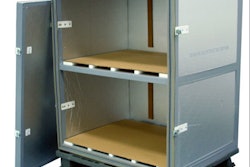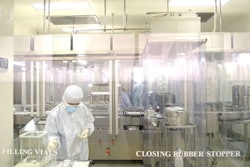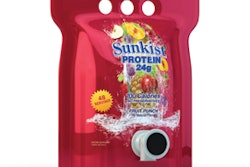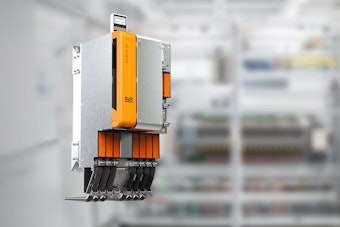This content was written and submitted by the supplier. It has only been modified to comply with this publication’s space and style.
The new application note will be available on NanoInk's Web site in the coming weeks. The NanoFabrication Systems Division will also be presenting a poster and exhibiting at the ASCB (American Society for Cell Biology) 50th Annual Meeting, from Sunday, December 12 through Wednesday, December 15, at the Pennsylvania Convention Center in Philadelphia, Pa.
“The new application demonstrates successful use of the NLP 2000 System to investigate cell response to its microenvironment at single cell levels,” said Tom Warwick, general manager, NanoInk's NanoFabrication Systems Division. “We envision that this will enable studies in live single cell arrays, nanotoxicology, developmental biology, tissue engineering, cell physiology, chemotaxis, migration, and mechanotransduction.”
Launched in 2009 as a tool for bioscience research, NanoInk's NLP 2000 System is a simple, userfriendly desktop nanolithography platform. The system leverages patented Dip Pen Nanolithography® (DPN®) technology to deposit sub-cellular-scale features of a wide variety of materials with nanoscale registry, all under ambient conditions. With the addition of the new capability to its portfolio of biological research support materials, NanoInk continues to serve as a true partner to the life science community.
“The new application demonstrates successful use of the NLP 2000 System to investigate cell response to its microenvironment at single cell levels,” said Tom Warwick, general manager, NanoInk's NanoFabrication Systems Division. “We envision that this will enable studies in live single cell arrays, nanotoxicology, developmental biology, tissue engineering, cell physiology, chemotaxis, migration, and mechanotransduction.”
Launched in 2009 as a tool for bioscience research, NanoInk's NLP 2000 System is a simple, userfriendly desktop nanolithography platform. The system leverages patented Dip Pen Nanolithography® (DPN®) technology to deposit sub-cellular-scale features of a wide variety of materials with nanoscale registry, all under ambient conditions. With the addition of the new capability to its portfolio of biological research support materials, NanoInk continues to serve as a true partner to the life science community.
Companies in this press-release






















